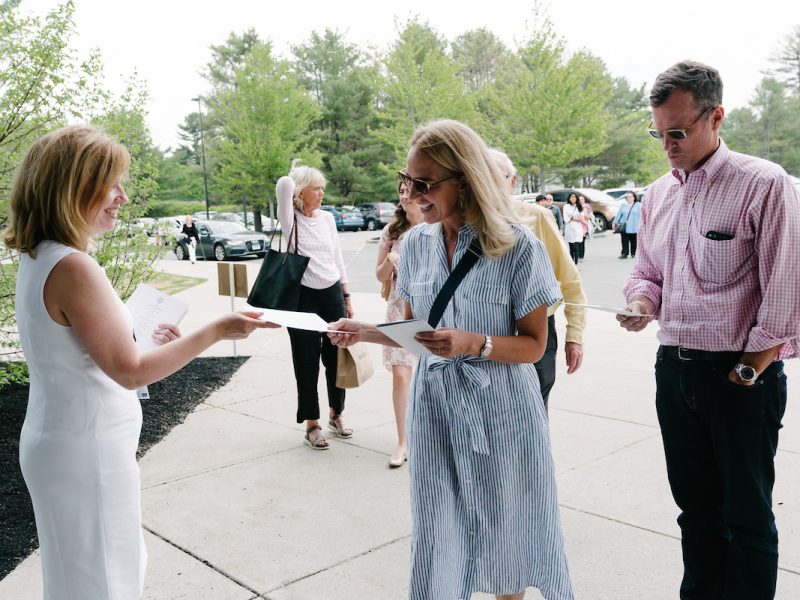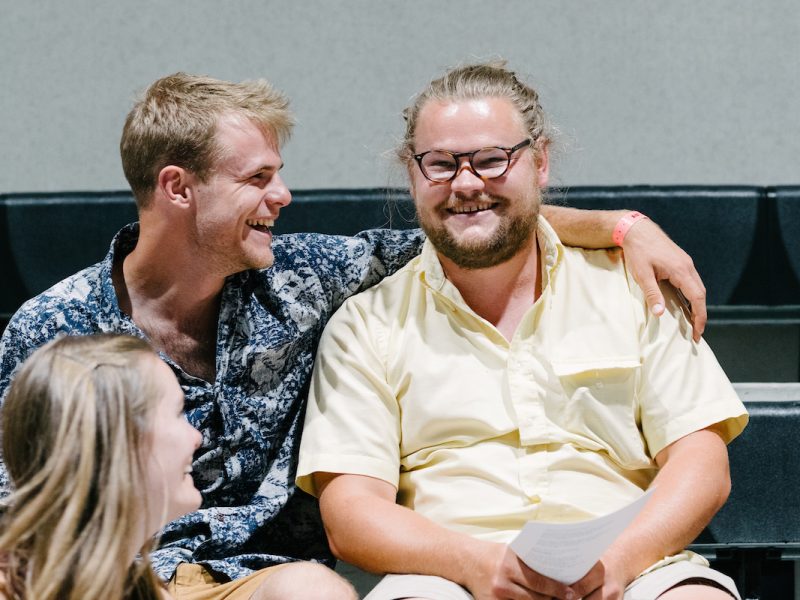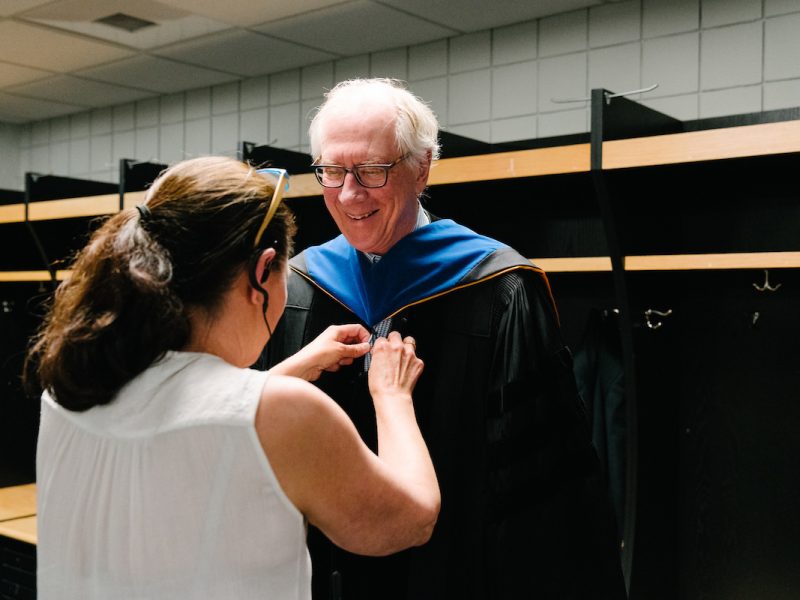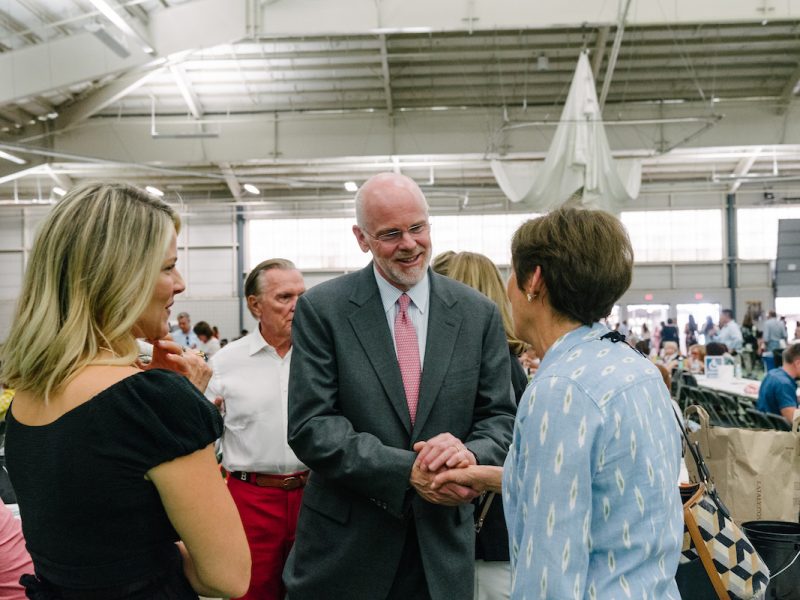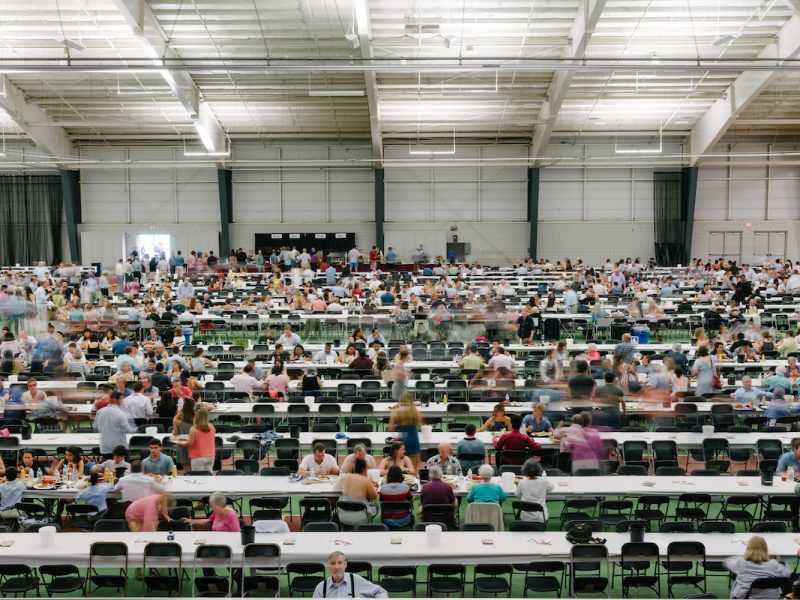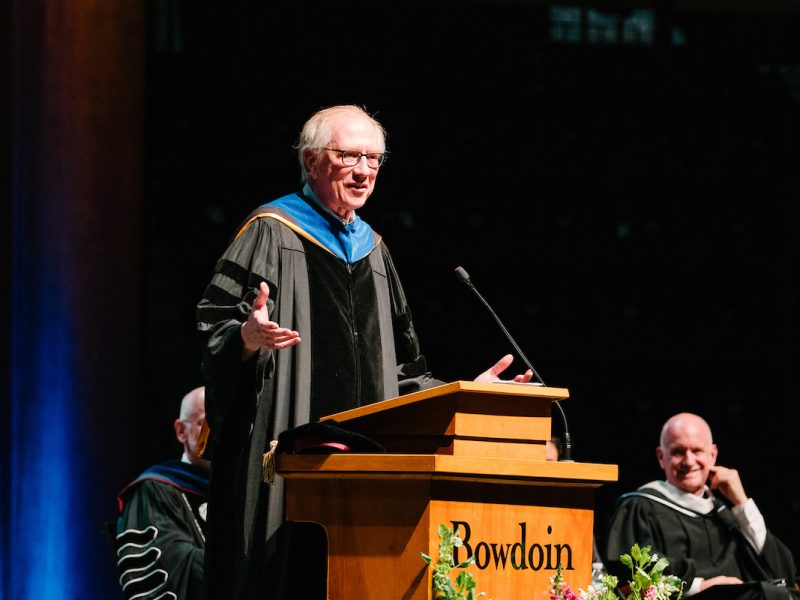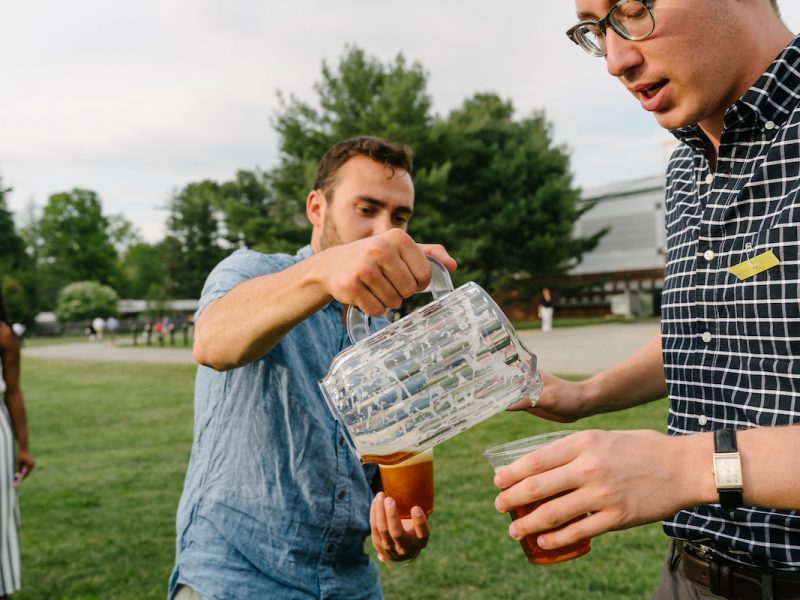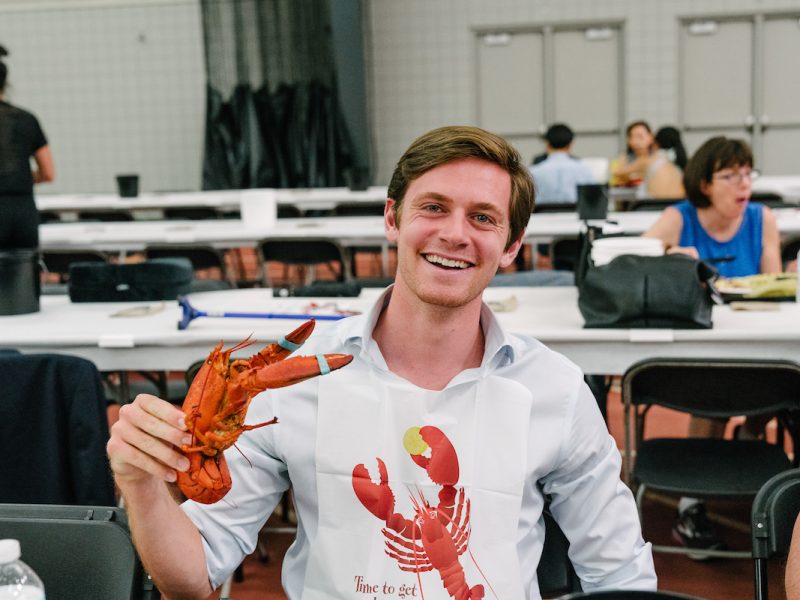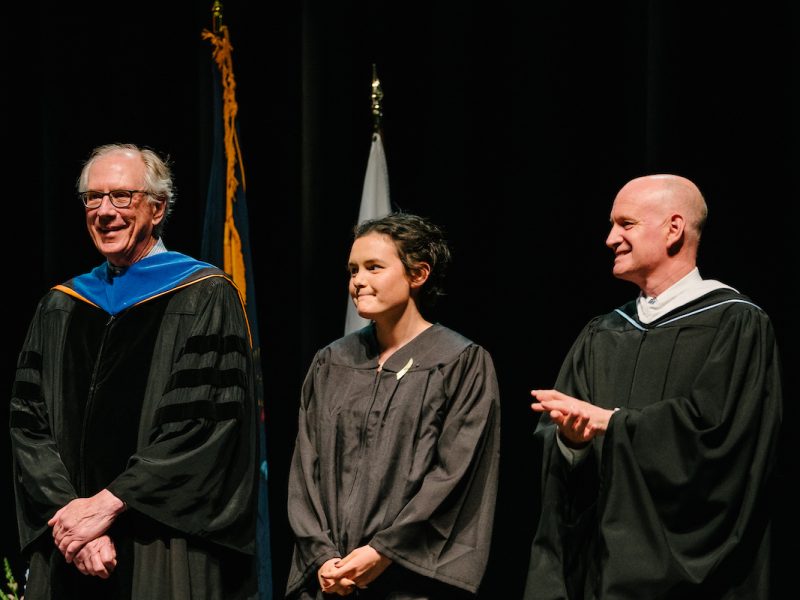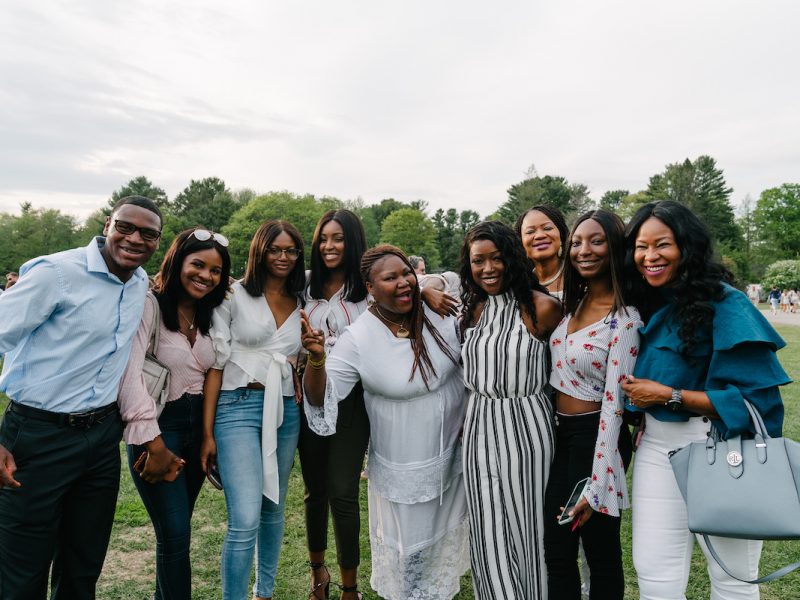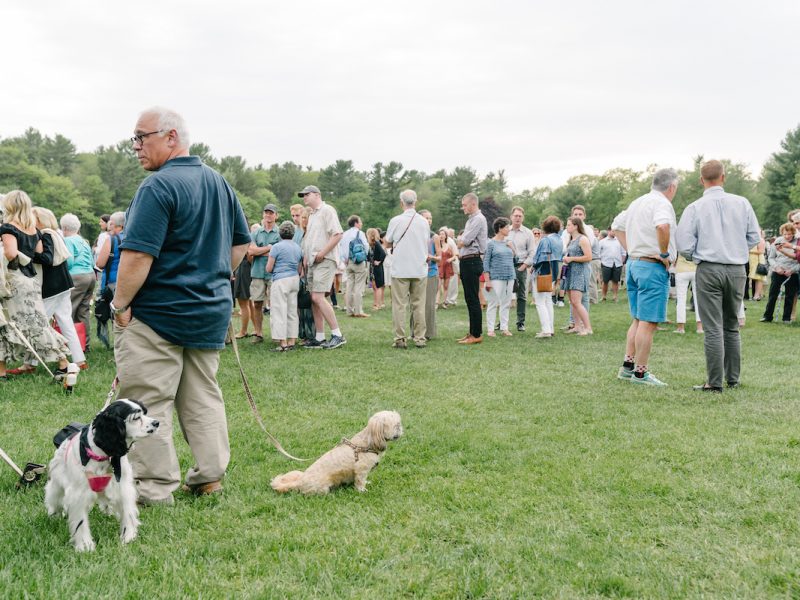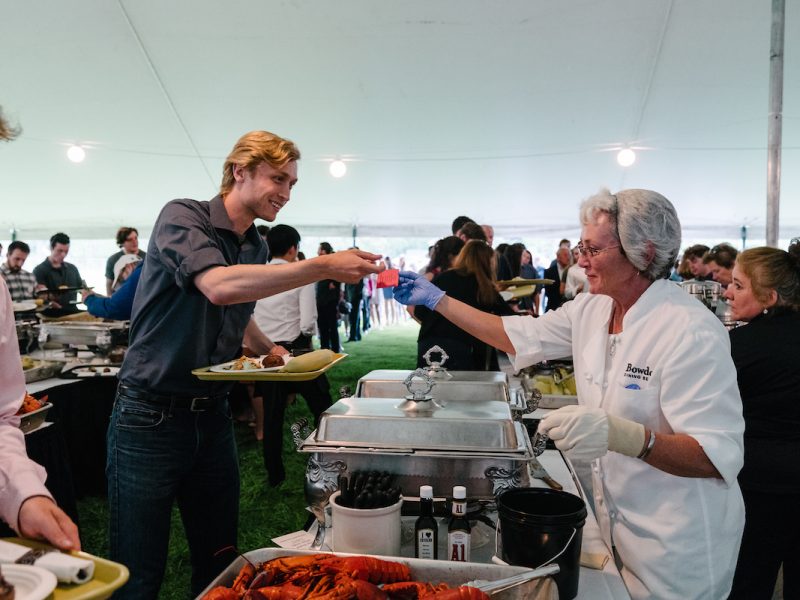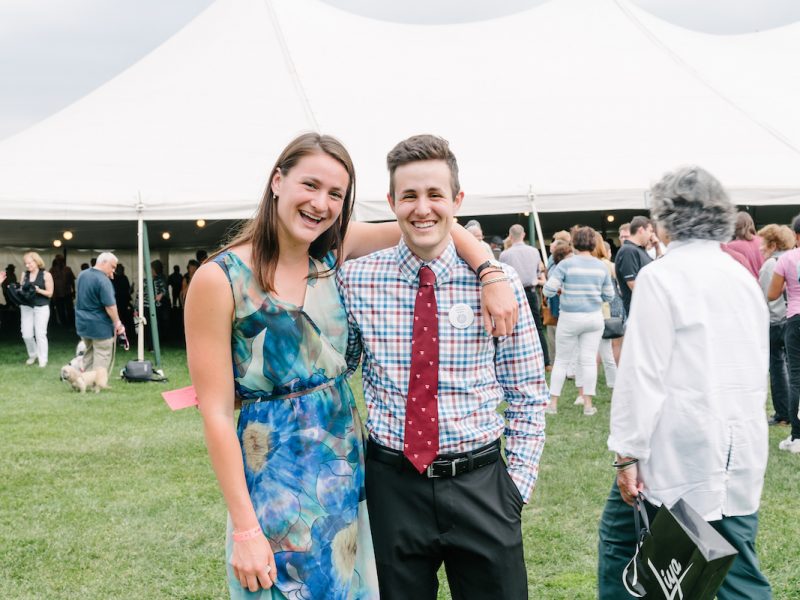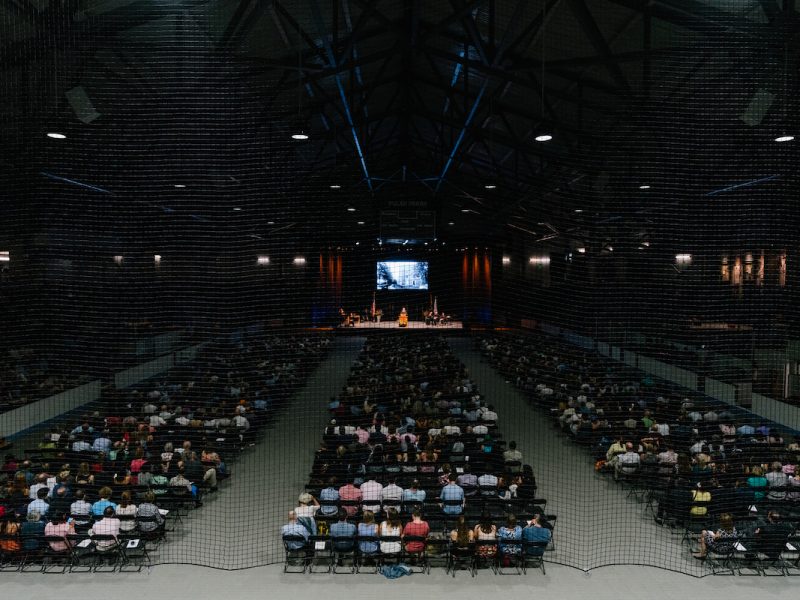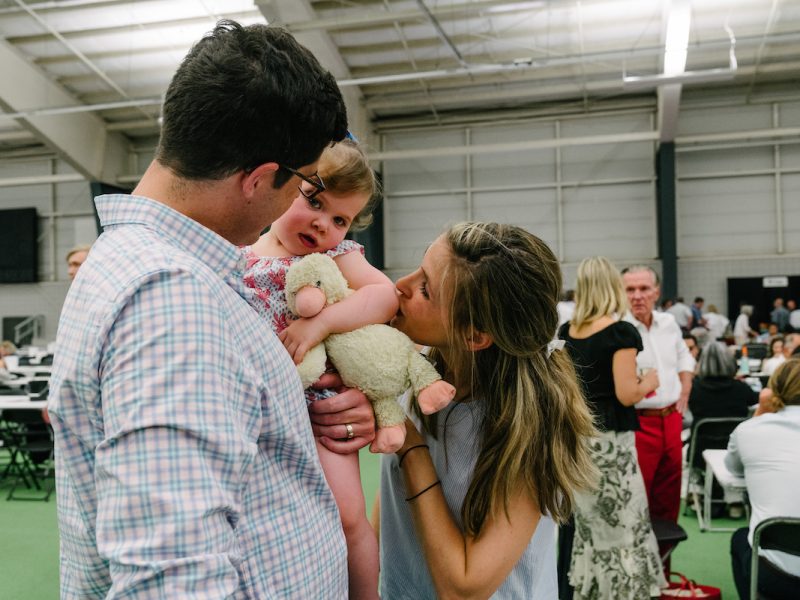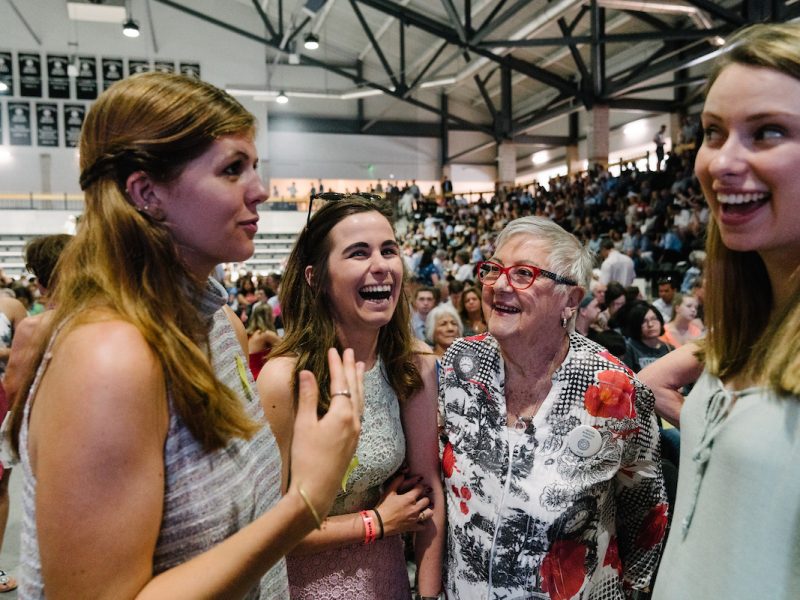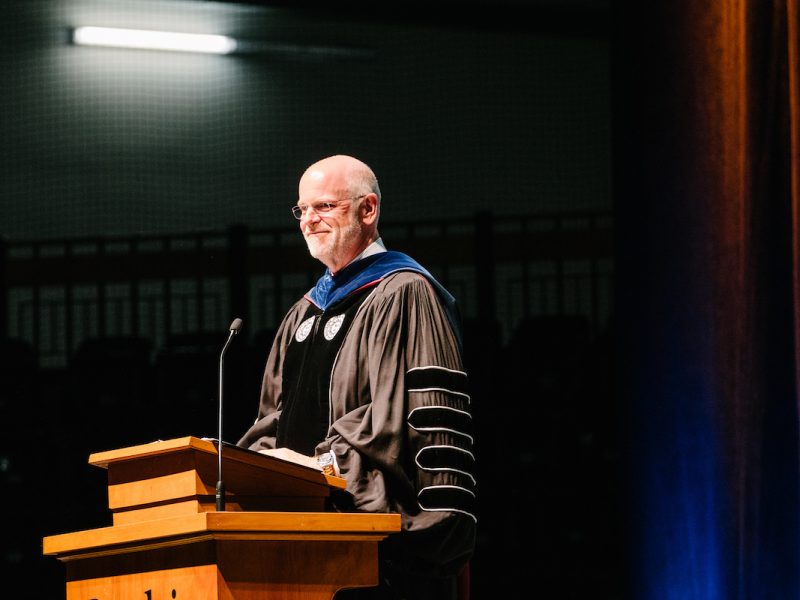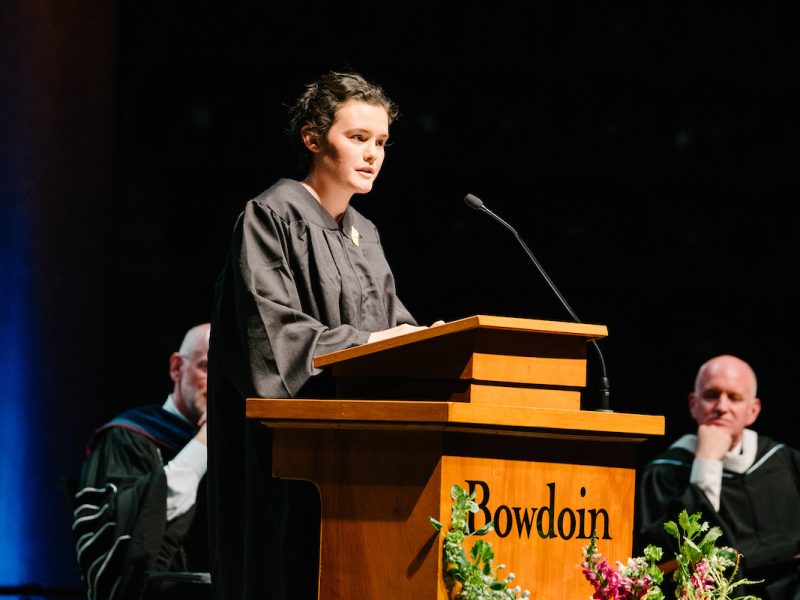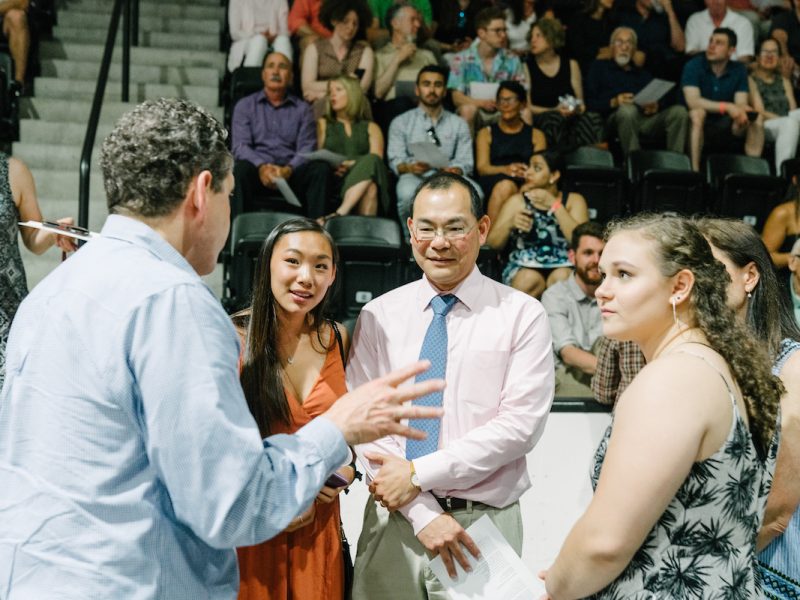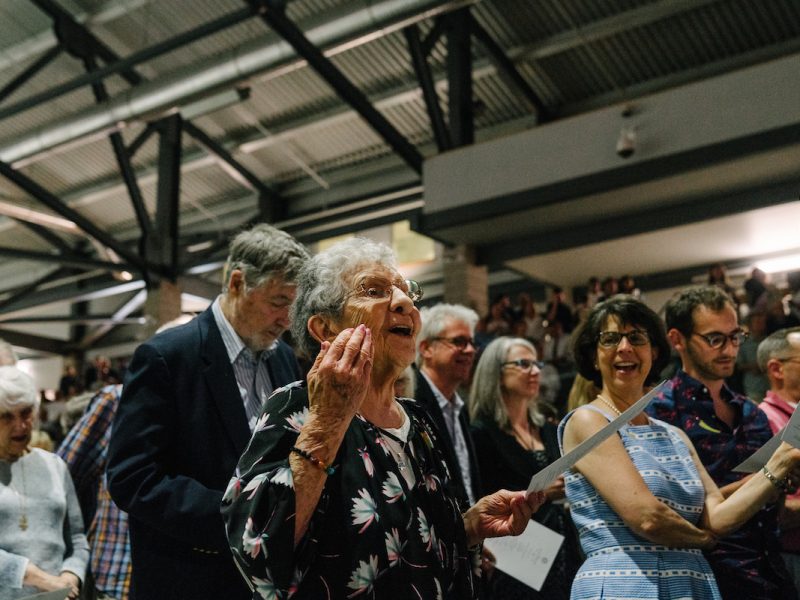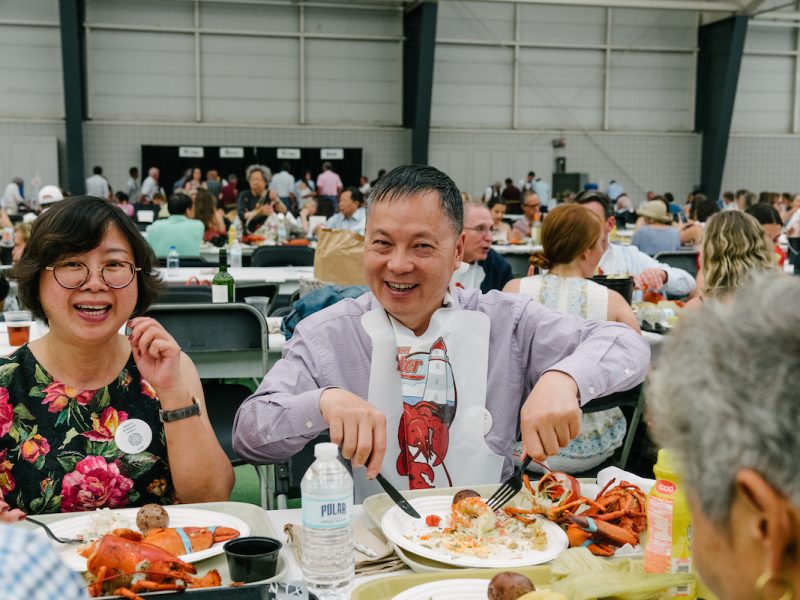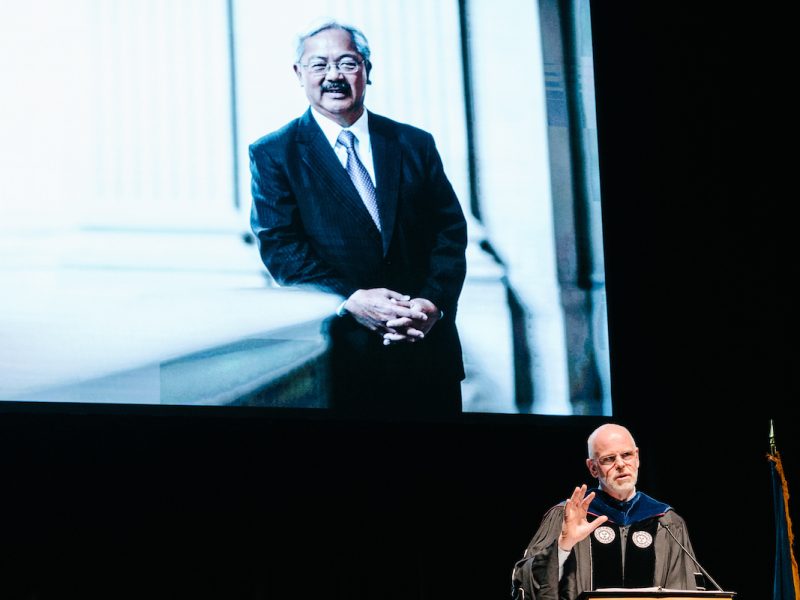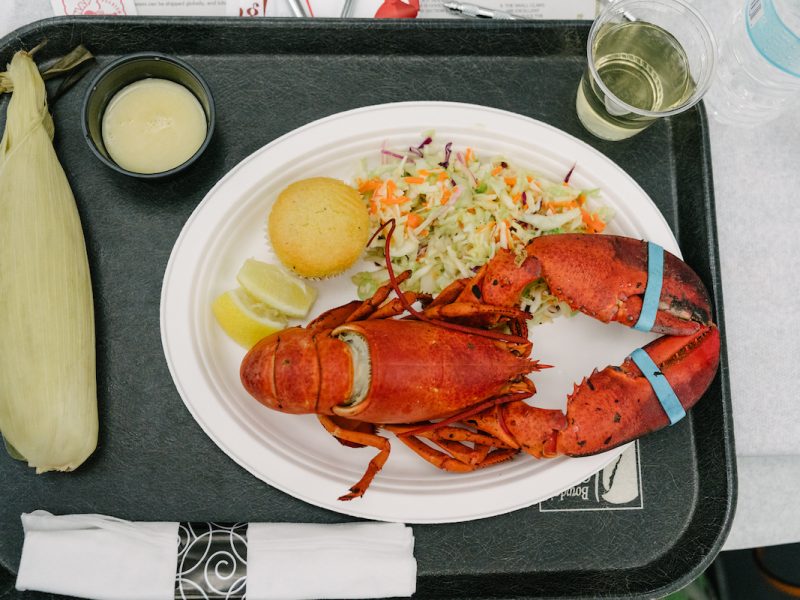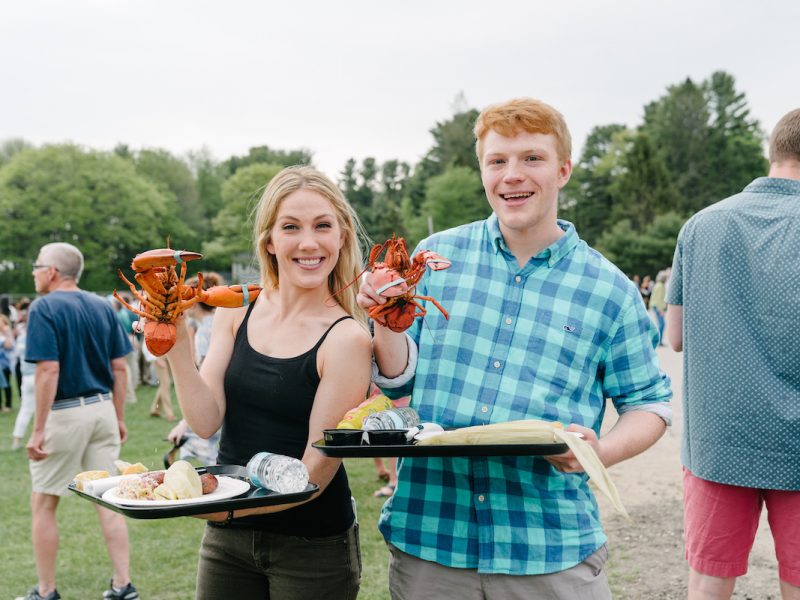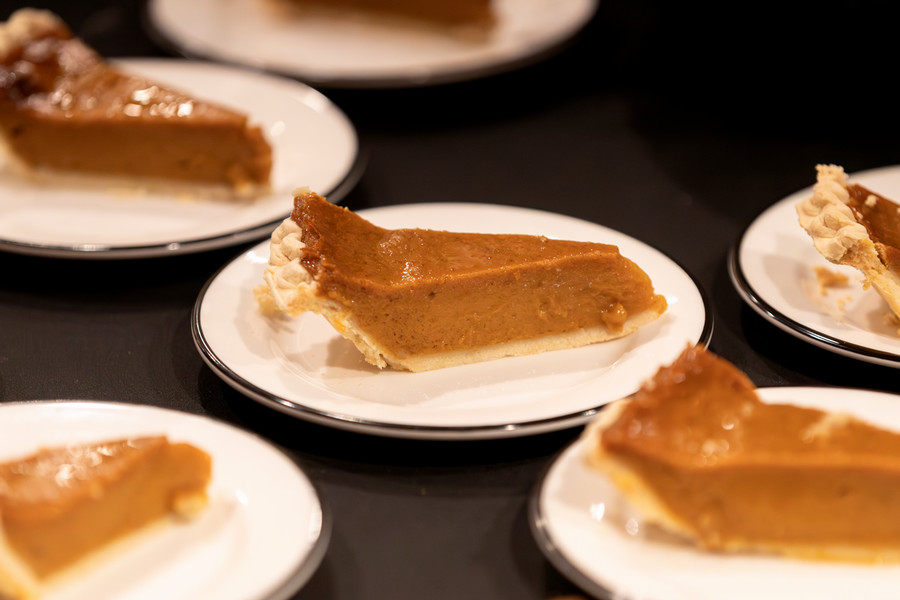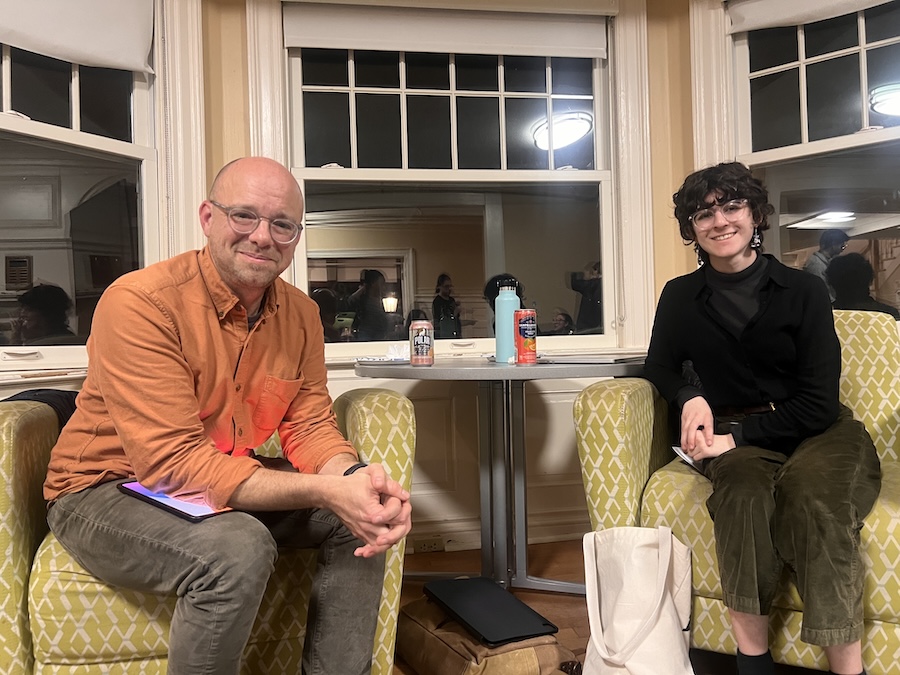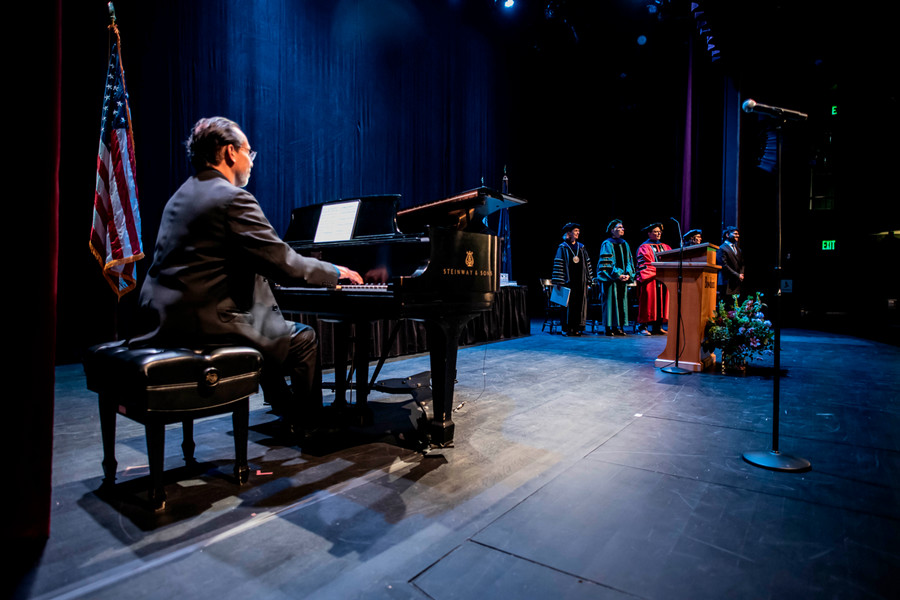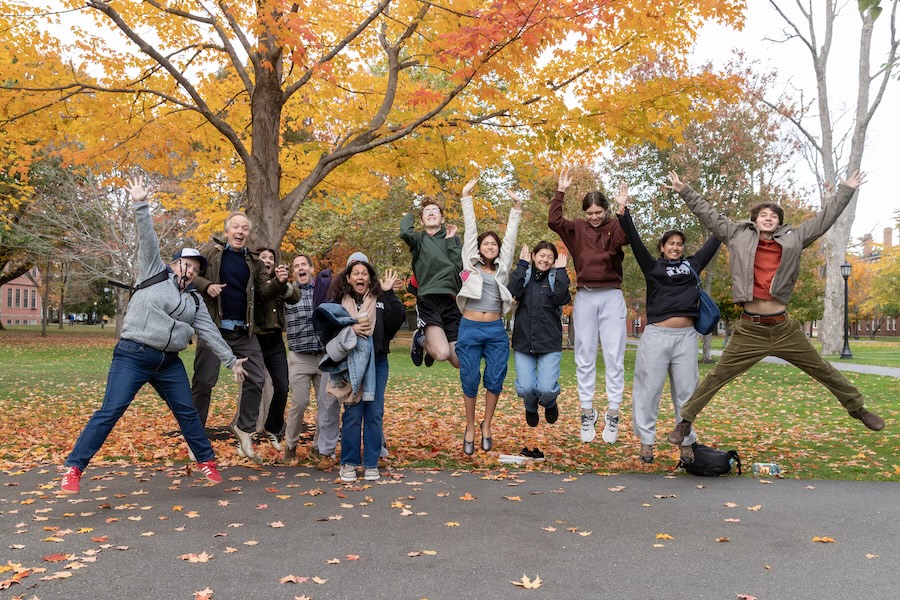Bowdoin Marks Close of Academic Year with Baccalaureate Ceremony
By Rebecca Goldfine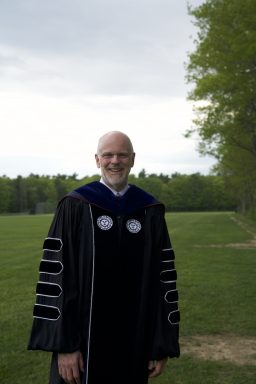
Bowdoin College held its Baccalaureate ceremony Friday, May 25, 2018, in the Sidney J. Watson Arena, marking the official close of the academic year. The College’s 213th Commencement will be held Saturday, May 26.
President Clayton Rose presided over the Baccalaureate ceremony, using the opportunity to reflect on Bowdoin alumnus Ed Lee ’74, San Francisco’s former mayor. Lee died in December after living “a remarkable life,” said Rose, and he urged the graduating seniors to learn from how Lee conducted his exemplary life.
Lee was born in Seattle, the child of immigrants from China. He attended Bowdoin with a full aid package and graduated summa cum laude. He then graduated from law school, and spent many years advocating for immigrant communities and fair housing in the Bay Area. Lee was appointed mayor to finish out a one-year term in 2011. In 2012, he ran and was elected in his own right. He did it again in 2015.
“There are a lot to of ways to think about Ed’s legacy—devoted spouse and parent, first-generation American, first mayor of San Francisco of Asian descent, fierce advocate, leader of the city at the center of the technology revolution, balancing the intense change, excitement, dislocation and human issues that it created,” Rose said, before adding that there was, also, “something deeper” to him.
Lee possessed great humanity and was dedicated to serving the common good, Rose said. He was driven. And he was deeply ambitious about the work he did and the change he envisioned. “But here’s the thing that made Ed so special—he lived his life with joy,” the president added. “On the occasions when I was able to spend time with him, it was simply impossible not to be drawn in by the gravitational pull of his joy.”
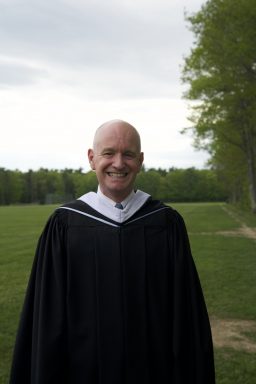
Voices from Bowdoin’s Past
Dean of Student Affairs Tim Foster delivered “Voices from Bowdoin’s Past,” a Baccalaureate tradition, in which he spoke of one of Bowdoin’s most illustrious alumni, Henry Wadsworth Longfellow, Class of 1825.
Longfellow, it seems, was an upbeat college student. In one of his letters home to his family in Portland, Maine, he wrote, “…I feel far better contented here–far more happy, and far less inclined to be low-spirited, than has ever been the case at any former period…You must not be surprised when I tell you, I wish to not come home. No–not yet!–not for weeks–months!”
When senior year rolled around, Longfellow succumbed to a bit of pre-graduation anxiety. In a letter to his sister, he wrote, “…in five weeks we shall be set free from college…Then comes Commencement–and then–and then–I cannot say what will be after that.” He pleaded with his skeptical father to support his desire to become a writer rather than go into law.
Foster suggested that parents might take comfort from this story of tense parent-child interaction. “Parents and family, be gentle. It turned out quite well for Henry and it will work out for your daughter or son as well,” he said.
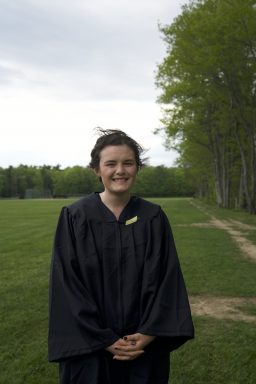
DeAlva Stanwood Alexander Prize Winner Diana Furukawa ’18
In her address “Why Are We Here?” senior Diana Furukawa spoke of pride, and humility. Pride, she warned, can prevent us from tackling questions that promote curiosity and growth. In her remarks, she did not shy from discussing hard topics, such as sexual violence, income inequality, and Native American rights.
One of the most pressing questions Furukawa said she has grappled with over the last four years is, why am I here? Initially, she asked this during bouts of homesickness. Then it became more outwardly focused and critical: why do some in our country have access to higher education and some do not? And from these inquiries arose more questions: what is knowledge, and what makes certain forms of knowledge more valuable or legitimate than others?
Furukawa answered a few of her questions by dwelling on the term, “cultural humility,” which she defines as a framework for engaging with others, one that strives to mitigate power imbalances through learning and self-reflection.
“At the core, cultural humility suggests that knowledge is about accepting how much we don’t know. Locating the blind spots and implicit biases that we all have. It’s about consistently asking, what am I not seeing?” she said. “Self-reflection must be a part of that, because our stories, experiences, and struggles are intrinsically connected.”
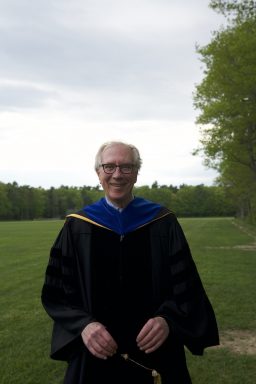
Keynote Address: Thomas R. Cech
Thomas Cech, a Nobel Prize-winning chemist, president of the Howard Hughes Medical Institute and a distinguished professor at the University of Colorado, delivered the keynote address, “Learning Liberally—Looking Back, Leaping Long.” He is one of three honorary degree recipients this year.
Cech’s work has led to the discovery of the catalytic properties of RNA, and he has made breakthroughs in our understanding of telomeres, the structure that protects the ends of chromosomes, and how they contribute to disease and aging. Throughout all his research and writing (he has published 344 articles), he stays focused on science education, for which he is a passionate advocate.
Cech told the soon-to-be graduates that their liberal arts education has equipped them well, by giving them skills such as critical thinking, adeptness at accessing information and ideas from others, and eloquence in speech and writing. These skills will help them to be nimble and adaptive.
“Your liberal arts education will serve you so very well—not just as a road to a job, but as a road to your life,” he said. “Why is that the case? Why isn’t just learning more and more facts the road to success? Because things are changing so rapidly.”
“Learning a lot of stuff is suspect,” he continued. “Instead, you’ve been learning how to learn. It is that skill set, totally adaptable to every new set of facts and technologies, that will allow you to contribute to your family, your community, your country, and your world, tomorrow, next year, and even half a century from now.”
Baccalaureate Music
The audience was led through renditions of “America the Beautiful” and “Raise Songs to Bowdoin” by singers from the Class of 2018 and George Lopez, Beckwith Artist in Residence, on piano.
Photos by Tristan Spinski
